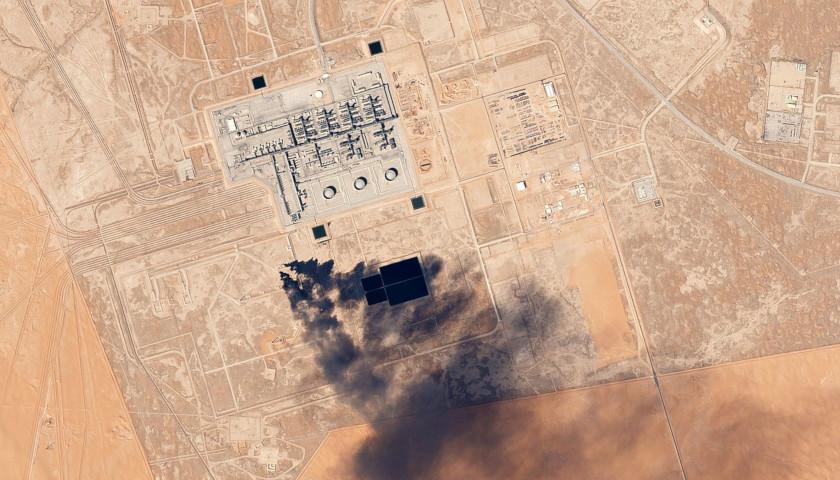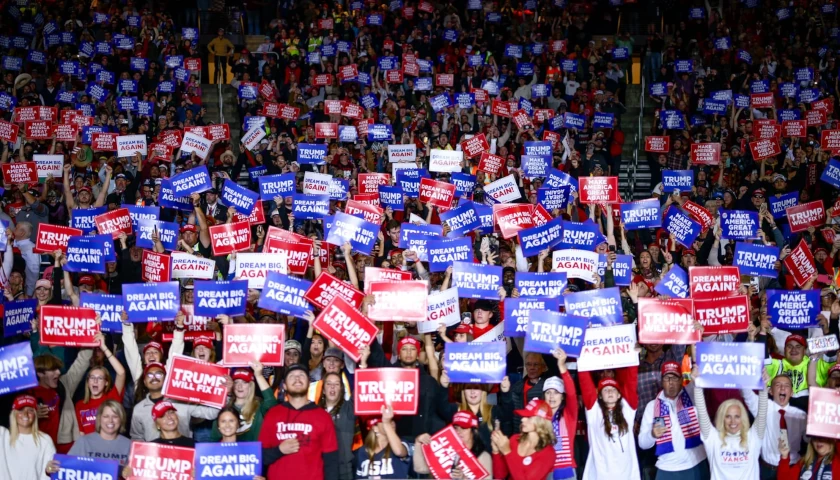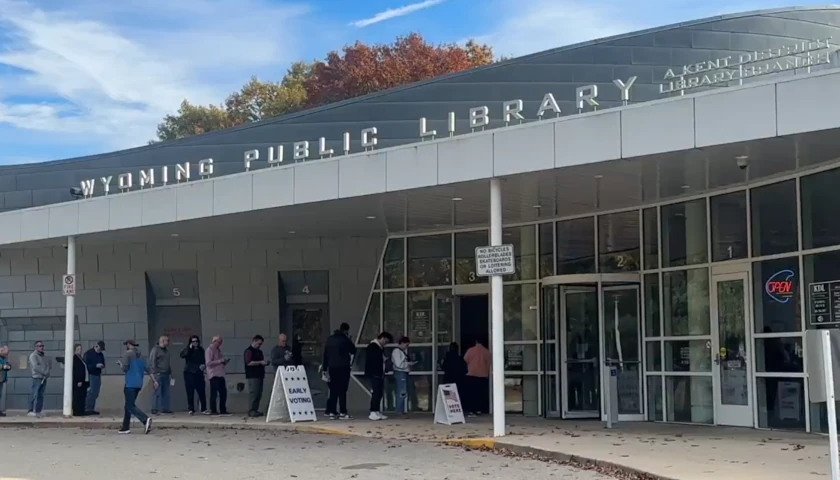by Robert Romano
In the flash of an eye, the world’s oil supply was reduced by 5 percent after the Sept. 14 attacks on Saudi Arabian oil facilities including the Abqaiq oil processing facility, which sent oil prices soaring in trading on Sept. 16 and then a subsequent pullback today upon Saudi announcements that production will be restored within weeks.
Houthi rebels from Yemen have claimed credit for the attacks while the U.S. has pointed the finger at Iran. Wherever the blame lies, the sudden disruption of oil supply lines and the subsequent sharp rise of prices underscores the overall fragility of global energy supplies. Saudi Arabia has said it will offset the loss of production — viewed at about 5.7 million barrels a day — by releasing reserves. President Donald Trump has similarly stepped in to open up U.S. reserves.
In the meantime, Trump’s opponents in the Democratic presidential primary have been pushing an agenda of banning hydraulic fracturing that produces shale oil, off-shore drilling and ending fossil fuels altogether with the Green New Deal, which would surely reduce global supplies even further and create an overnight energy and financial crisis, pushing prices even higher.
The U.S. is now the number one oil producer in the world at 12.4 million barrels per day, according to the U.S. Energy Information Agency, built off of the oil shale boom. That’s more than Russia and Saudi Arabia, which each produce a little more than 10.5 million barrels a day, and makes up about 15 percent of the world’s 82.5 million barrels per day needed to keep markets stable.
And with about half of Saudi Arabia’s processing capacity now in flames, about 5 percent of global production, the U.S. share of global supplies suddenly just became that much more essential. The world’s population of 7.7 million depends on constant supplies of commodities like food and energy, the level of production of which are the products of the industrial revolution and globalization of the economy. It’s not going away and, if anything, needs to get bigger in order to offset future disruptions.
Just a mere 5 percent disruption of global oil supplies, even if temporary, will be enough to have an impact on prices for weeks and months ahead. In the 2000s the growth of China and the weak dollar were enough to send oil soaring to $150 a barrel.
This demonstrates that the Green New Deal, fossil fuel bans and other varieties of foolishness we are seeing from radical environmentalists, if ever implemented, will have predictable market-driven consequences that will make the 1973 Arab oil embargo or the 2008 oil bubble look tame in comparison.
Prices might have risen anyway with the strong dollar peaking and Fed easing upon us with more interest rate cuts on the horizon, with the next cut expected to come at the Sept. 19 meeting of the Federal Reserve. The bombing of the Saudi oil facilities just iced it.
Americans for Limited Government President Rick Manning blasted Democrats’ plans, especially in light of the attacks on Saudi oil facilities in statement, saying, “The attack on the Saudi oil fields demonstrates to Americans who are too young to remember the 1973 oil embargos just how delicate the supply lines of oil are in the Middle East. While much of the world’s energy supply may be thrown into turmoil as a result of these attacks, with higher prices, the United States stands as a nation prepared to meet these energy challenges and higher demand — due to energy independence achieved under President Trump. Hydraulic fracturing is the reason why America is part of the solution to this energy supply attack, and Sen. Elizabeth Warren’s dangerous promise to end fracking, and all Democratic candidates who want to end off-shore drilling, can now be seen for the foolish pandering they represent. While Warren pretends to be a serious candidate for president, no one who would put America at the mercy of Middle East oil supplies can ever again be trusted in the White House.”
Global markets are not just a light switch that environmental activists can just swoop in and shut off — as much as they would like to — without dramatic, sometimes catastrophic consequences ensuing.
Level-headed people look at these circumstances and say that as a world-leading producer, we have an obligation to fill market demand.
Environmental radicals look at the same set of circumstances and argue for what amounts to an economic suicide pact. They see disruptions of supplies as proof that an alternative is needed urgently, even if the current alternatives cannot even meet a fraction of market demands.
The lesson here — the real lesson — is that the U.S. needs to be prepared for supply disruptions. We need redundancy. Oil shale production and supporting off-shore drilling accomplishes that, but Democrats are now broadcasting that that can all change with just one election. Their response to supply disruptions will be to make them worse, no matter how bad it is for the economy.
– – –
Robert Romano is the Vice President of Public Policy at Americans for Limited Government and is currently long on oil stocks.
Photo “Saudi Arabian Oil Fields” by Planted Labs, Inc. CC BY-SA 4.0.





